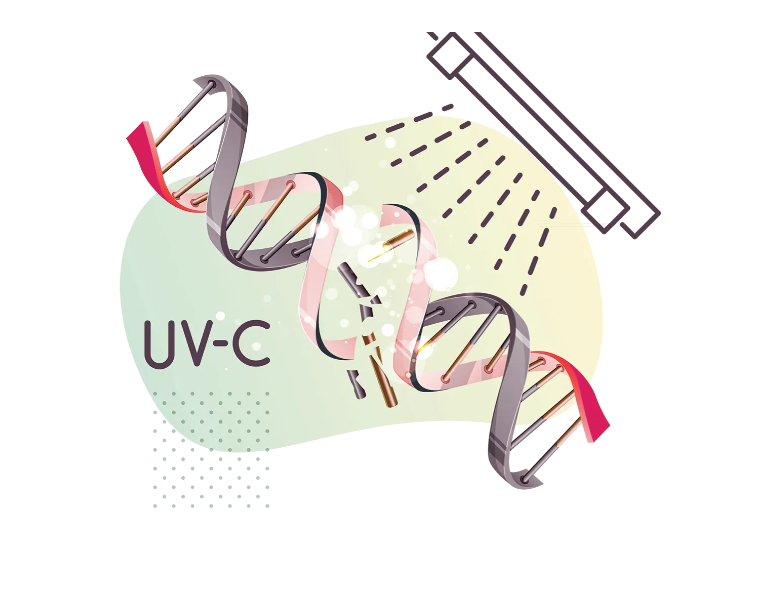
Stationary and portable evaporative cooling systems use large amounts of water, creating an environment conducive to the growth of bacteria, viruses, and algae. The proliferation of these microorganisms not only compromises the effectiveness of the system, but can also cause disease and contamination. UV-C antibacterial lamps, effectively disinfect, whether fungus, bacteria, or viruses, and annihilate any type of pathogen in the shortest possible time, and without chemicals, residues or discoloration.
The operation of UVC lamps
UVC light is a type of light radiation belonging to the ultraviolet (UV) spectrum, with wavelengths between 100 and 280 nanometers. The science and technology behind germicidal UV lamps have existed for a long time, although they were not used until recently.
The effectiveness of UV-C lamps depends on the wavelength of the light, which is so short that it can penetrate the DNA of bacteria and viruses. This exposure to ultraviolet photons causes a distortion of the DNA helix, blocking the processes of replication and transcription. As a result, microorganisms become inactive and can no longer multiply.
Advantages of using UVC lamps
The advantages of using UVC lamps are many. A cooling system operating with contaminated water may be less efficient, as the presence of biofilms and algae can impede water flow and increase the need for maintenance. By using UV lamps to disinfect water, deposit formation is reduced, improving system efficiency and, consequently, reducing energy costs.
The use of bactericidal UV lamps is also a sustainable choice. Unlike many disinfectant chemicals, UV technology does not introduce harmful chemicals into the environment, contributing to greener management of water resources and reducing risks from hazardous and irritating substances.
Finally, as water quality and public health regulations increase, implementing UV systems in evaporative cooling systems helps companies ensure compliance with applicable laws while protecting workers and customers from potential hazards.
UV germicidal lamps for water quality improvement
In summary, bactericidal UV lamps are an effective and sustainable solution for improving water quality in evaporative cooling systems. Investing in this technology not only optimizes system performance, but also contributes to public health and environmental protection. Whether it’s fungi, bacteria, or viruses, UV-C lamps annihilate all kinds of pathogens in the shortest possible time, and without chemicals or residues.

